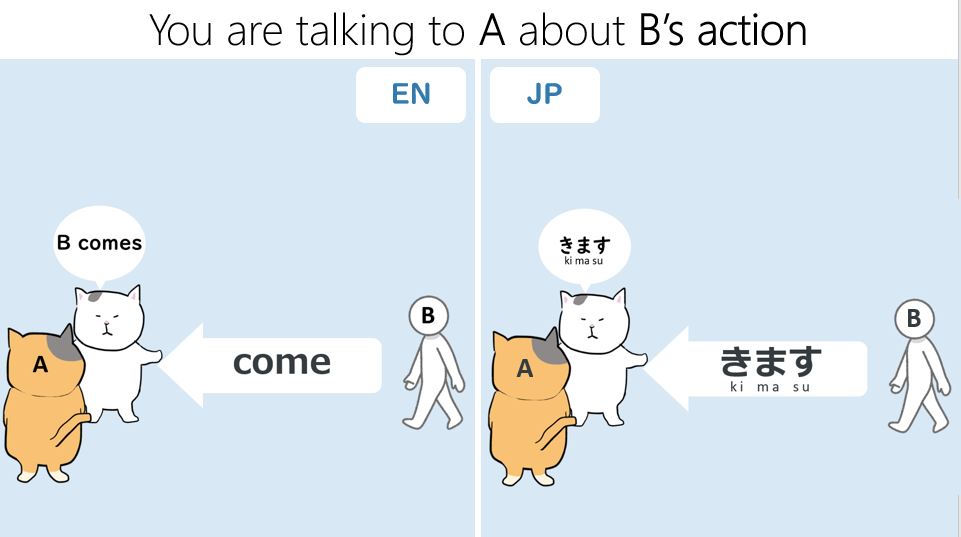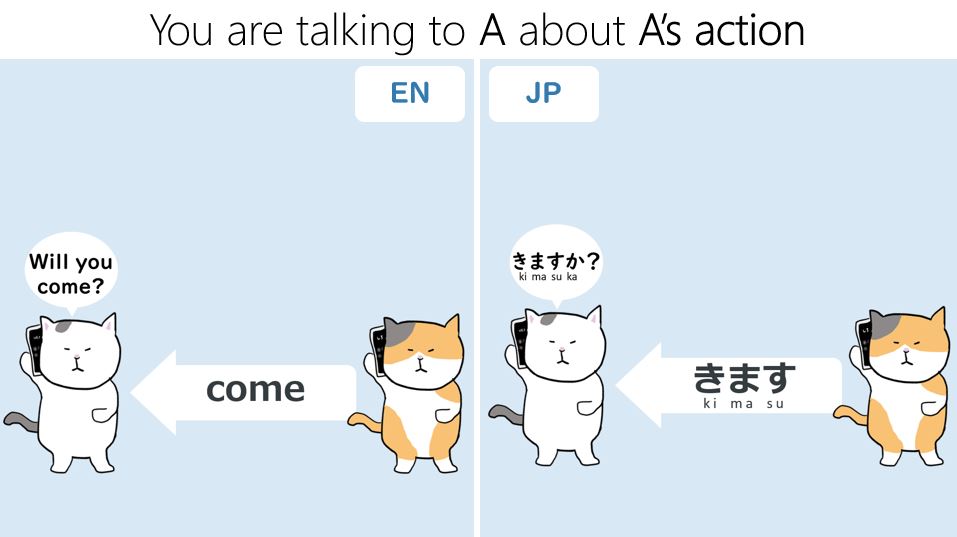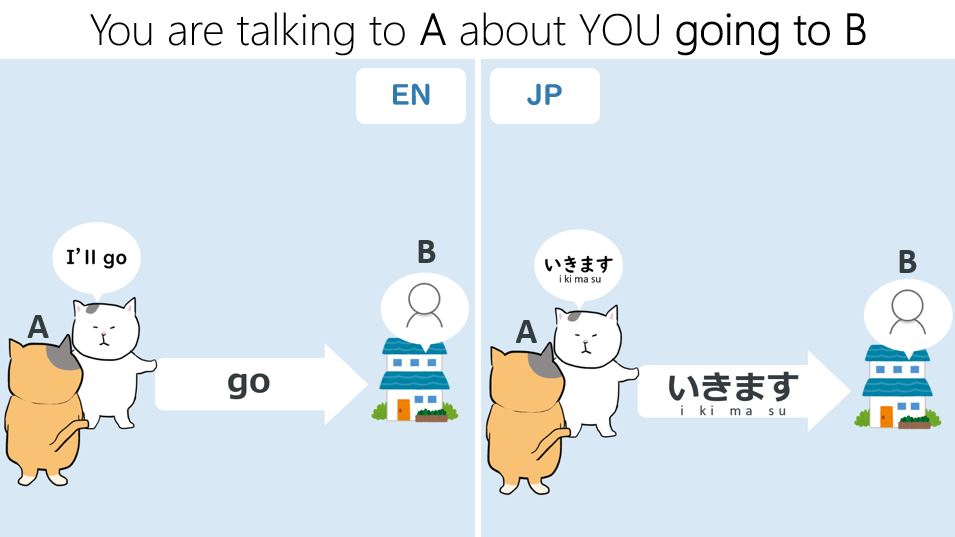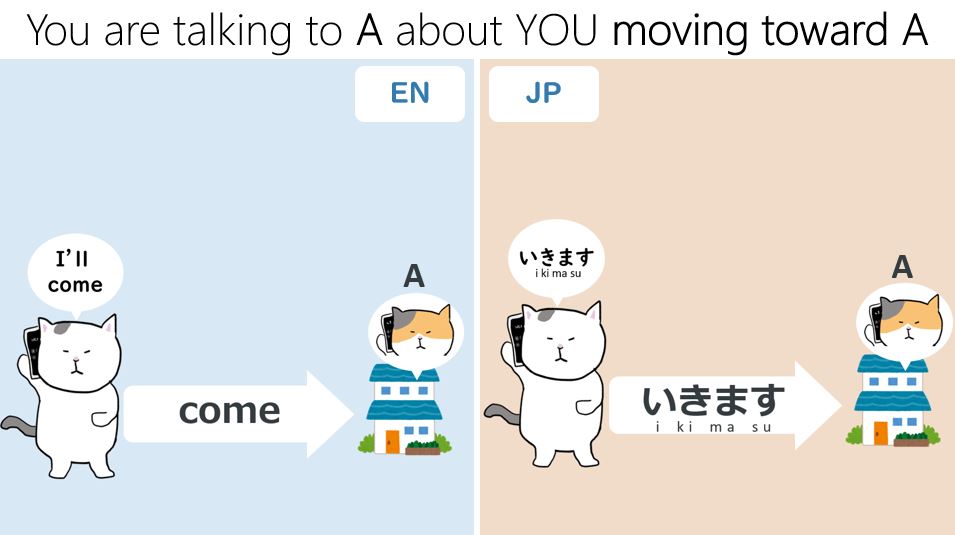There are many cases where the Japanese "KURU/KIMASU" really means the same as the English "come", and the Japanese "IKU/IKIMASU" really means the same as the English "go", but there's a certain case where it's used differently.
Let's look at the following 4 scenarios.
This video explains with animations:
I'll come or I'll go?
Basically,
KURU/KIMASU - Someone or something is moving toward you or whoever the speaker is
IKU/IKIMASU - Someone or something is moving AWAY from you or whoever the speaker is. When you are the speaker, you will still be moving away from yourself(the speaker) or your current position by "going somehwere"
Scenario 1:
In this scenario, you are talking with A about "B coming" to you (B moving toward you). In English, you'd say "B comes" because B is moving toward the speaker, which is you, the white cat in the picture. It's the same thing in Japanese, so you'd call B's action as "KIMASU" because B is moving toward the speaker.

Scenario 2:
In this scenario, you are talking with A about A's action. In English, you'd ask "Will you come?" because you want to know whether A will be coming toward you, the speaker (the white cat in the picture). It's the same thing in Japanese, so you'd call A's action as "KIMASU" because A is moving toward the speaker.

Scenario 3:
In this scenario, you are talking with A about you going to the third person, B. You are moving away, so you'd tell A "I'll go (to B)" in English. Again, it's the same thing in Japanese, you are moving away from the speaker, which is yourself, the white cat in the picture, so you'd call your own action as "IKIMASU"

Scenario 4:
In this scenario, you are talking with A about you going to A. In English, "come" is used when you are moving toward the person you are talking to, so you'd say "I'll come (to you)". BUT, in Japanese, it doesn't matter where you are moving to. It doesn't matter that you are moving toward the person you are talking to. As long as you are moving away from the speaker, which is yourself, the white cat in the picture, you'd call your action as "IKIMASU".

Hope this helps.




